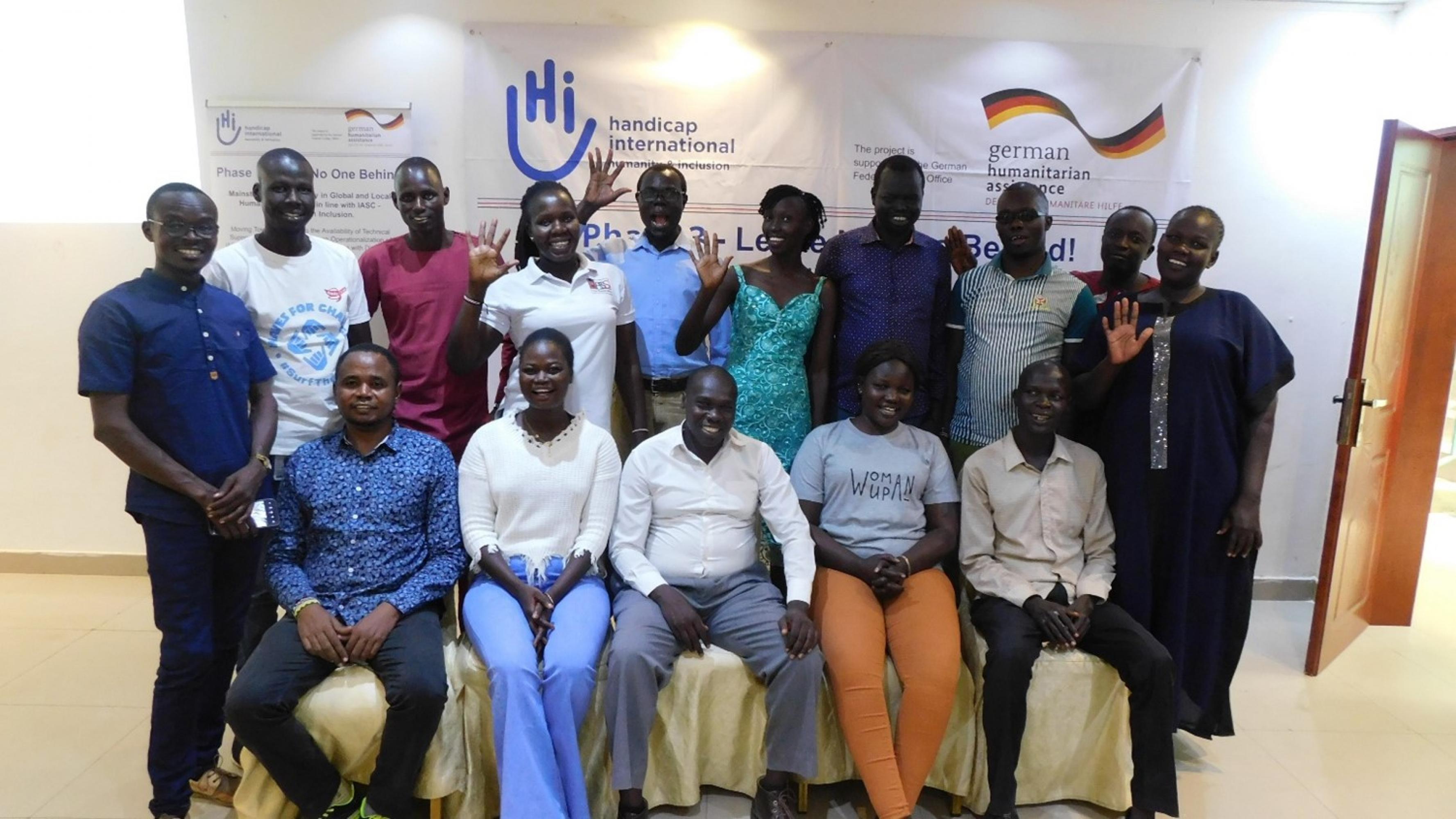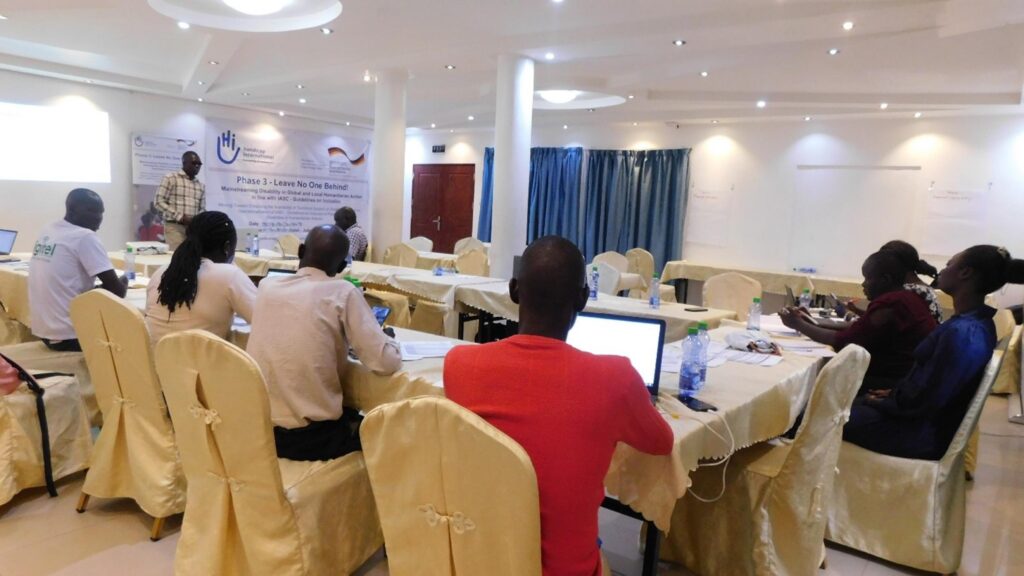
© Gloria JR
HI’s South Sudan team conducted its first Training of Trainers (ToT) workshop for members of the technical support mechanism group at Juba Regency hotel, Juba, South Sudan from 27th to 29th February 2024. The three-day training drew 16 inclusion focal points drawn from National and International Non-Governmental Organizations, Organizations of Persons with Disabilities (OPD’s) and UN agencies.
The Technical Support Mechanism/ Group on Disability Inclusion is a working group that operates within protection cluster and under Gender Inclusion Task Team (GITT) in South Sudan. It was officially launched on 10th November 2023, and its membership comprised of nominated inclusion focal points who had previously participated in the project Review, Adapt and Action Learning Laboratory (RAAL) workshops.
The overall objective of the technical support mechanism on disability inclusion is to encourage knowledge sharing and collaboration among humanitarian actors, including OPD’s, for an effective and accountable humanitarian response in South Sudan that systematically mainstreams the rights of persons with disabilities. This will be done by strengthening and localising technical resources to operationalise the IASC Guidelines on Inclusion of Persons with Disabilities in Humanitarian Action.
Our project aims to strengthen the focal points capacity to provide technical support to mainstream disability at their own organizations and in the whole cluster coordination system. This will also reduce the high demand on HI by humanitarian organizations and clusters to provide training on disability-inclusive humanitarian action. The mechanism also intends to create a space for peer-to-peer learning, furthering work toward enhancing disability inclusion and promoting the twin-track approach and four must-do actions (meaningful participation, removal of barriers, empowerment and capacity building, data collection and monitoring) as defined in the IASC Guidelines.
The training was tailored to the needs of the task team and based on the Disability Reference Group (DRG) training modules on Introduction to Disability-Inclusive Humanitarian Action. It provided insight into the concept of disability, Must Do Actions, inclusive project cycle management and inclusive Accountability to Affected Population, and Review, Adapt and Action Learning Laboratory (RAAL-Lab) preparation processes.
The project team engaged OPD focal points as co-facilitators, as they had already facilitated previous trainings to protection cluster members. The focal points who were trained in the previous RAAL-lab sessions were also engaged to co-facilitate other topics. Therefore, the project team only provided technical input.
During the workshop the facilitators employed mixture of methodologies including group discussions, presentations, quizzes, video plays and ensured that the session was interactive and participatory. The focal points shared practical experiences of what they had implemented or were implementing, how they got management to buy in to the ideas, the challenges they faced and how they overcame them, which made the training lively.
Beside, the training was an opportunity for the trained focal points to refresh their understanding on the concept of disability-inclusion, twin-track approach and Must Do Actions. They also gained new knowledge on inclusive project cycle management and inclusive Accountability to Affected Population, and how to prepare, plan deliver and monitor Review, Adapt and Action Learning Laboratory processes themselves.
One of the focal points concluded:
This training has come at the right time, I had already planned to conduct trainings in field locations to our implementing partners using the disability inclusion lens, I would be able to cascade the same knowledge and skills gained from this training in my next training
Text by Obale Musa, HI South Sudan
